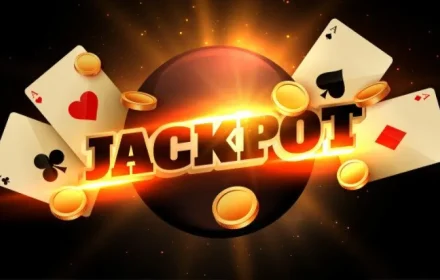Depositing in a casino is not just about adding funds to your account. It’s an act of entering the game with real money, not simulation. Specifically in craps, a deposit triggers a chain reaction where the player’s funds instantly convert into an active bet. The payment operation becomes part of the overall pace of the game, where you can’t hit pause. Money transitions from the player’s wallet to the system — in the equivalent of the chosen currency, most often in USDT, BUSD, TRX, or rubles — and then reflects in the game table interface. The gaming session starts instantly, the bet begins working in real-time — without waiting for confirmations, if a direct crypto deposit via the Web3 interface is used.
Depositing — what it means in a casino: direct mechanics using craps as an example
Depositing in a casino means activating access to a table where the game is played according to rules that exclude post-factum corrections. In craps, each bet requires prior confirmation — not only in the interface but also in the platform’s balance system. For instance, the system sees: the player loaded 100 USDT, placed 25 on Pass Line. The remaining amount is kept as free until utilized in the next phase. No virtual bets or trial games — only a fixed amount, bet, and risk. This distinguishes a full deposit from a demo mode.
How to deposit in a casino: what it is, transaction methods, and parameters
Deposit methods directly depend on the platform used. For example, Stake uses a direct crypto wallet with automatic address generation for each deposit. BC.Game offers the WalletConnect system with instant confirmation via Metamask or Trust Wallet. GGPoker uses a fiat-on-ramp but still calls it a deposit — which partially devalues the concept of depositing in a casino. In the context of craps, instant bet fixation is crucial. Therefore, preference is given to platforms where:
-
The network fee does not exceed 0.2% of the amount.
-
Blockchain confirmation takes no longer than 30 seconds.
-
The transaction immediately reflects in the gaming session.
-
The operation hash is provided for tracking.
-
At least one decentralized payment method is supported.
Casino slang: from “dep” to “fill-up”
Within the player community, slang around deposits holds a special place. Depositing in a casino is a colloquial way of expressing readiness to play with real money. Players often use terms like “fill-up,” “send to the table,” “pour in a hundred.” All these expressions signify the act of funding, but only “depositing” maintains neutrality and applicability to any platform. In craps, especially among regulars, you might hear phrases like: “deposited a three — sitting on 6/8,” meaning the player deposited 300 units and placed bets on specific numbers. Casino slang reflects rhythm and culture, not just technical actions.
Account replenishment: security and control parameters
Replenishing a casino balance is not just a financial operation but also a risk zone. The platform must record the user’s ID, fund source, compliance with limits. In craps, a player cannot make high bets without adequate coverage. Depositing in a casino means conducting a transaction that the system automatically verifies against limit parameters, transaction history, and sometimes previous verifications. In this context, a secure platform:
-
Utilizes two-factor authentication for login and deposit.
-
Supports whitelisting of addresses.
-
Limits daily top-ups without KYC verification.
-
Displays transaction status in real-time.
Verification: where anonymity ends
Even on crypto-oriented platforms, a verification moment arrives. A player can deposit in a casino without KYC, but only up to a certain threshold. For example, on BC.Game, when depositing over 1,000 USDT at once or exceeding 5,000 turnover in 48 hours, identity verification is automatically triggered. In craps, such scenarios are not uncommon — an active session requires constant bet updates, quickly accumulating amounts. To avoid account freezes, players prefer splitting deposits or undergoing simplified verification in advance, which includes:
-
Entering an email address and confirming via a link.
-
Linking a mobile number.
-
Integration with Google Authenticator.
Full verification is requested upon withdrawal of winnings, not during deposit, allowing players to deposit in a casino and start playing without delays.
Community culture and behavioral markers
In the gaming community, discussions about deposits often serve as markers of engagement. A newcomer asks how to deposit in a casino, and an experienced player responds: “better with TRX — it’ll go in faster.” Community culture is shaped around such exchanges of experience. In craps, strategies are frequently discussed: how much to deposit for a long session, what limit to set, how to manage the remainder. A collective experience emerges where everyone shares results. Platforms like Rollbit encourage such discussions in open chats and Discord servers, adding another dimension to what it means to deposit in a casino — it’s not just entering a game but also a community.
Deposit as a point of no return
Depositing in a casino initiates a process where every dollar gains speed and direction. In craps, this speed is particularly acute: the bet activates instantly, the outcome depends on the dice, but the entire system — from platform stability to thoughtful limits — is built around the initial deposit. Understanding transaction parameters, controlling volumes, choosing a platform wisely, and realizing risks — all of this is encompassed in the concept of “depositing.” It’s not just transferring money. It’s embracing the game as a form of financial activity — with internal logic, technical filters, and a culture of participation.
 en
en  de
de  ar
ar  es
es  hi
hi  fr
fr  nl
nl  ru
ru  it
it  pt
pt  el
el 










